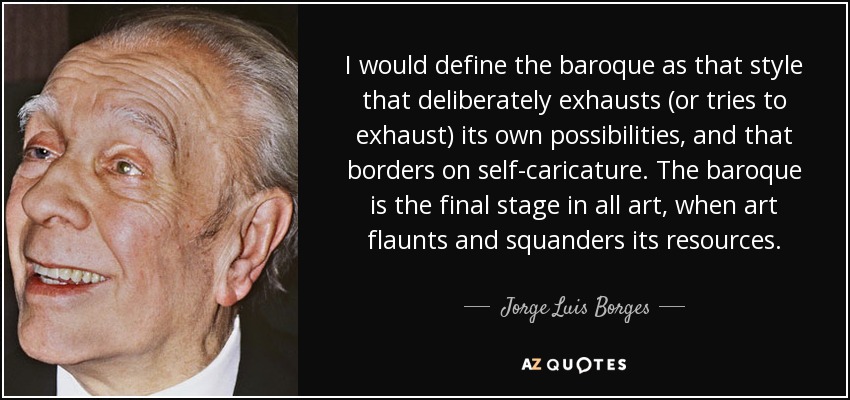
[Jorge Luis] Borges delighted in literary pastiche and false attribution. At the start of his literary career, he published a series of what he later admitted had been “hoaxes and pseudo-essays” in Buenos Aires newspapers and magazines, passing off texts of his own as belonging to other writers and writing reviews of non-existent books.
Borges' widow, however, begs to differ.
From The Guardian:
The novelist and poet Pablo Katchadjian is facing trial for “intellectual property fraud” after publishing a reworking of Borges’s 1945 story The Aleph. The Fattened Aleph – originally published by a small press in 2009 – extended Borges’s work from its original 4,000 words to 9,600.
Most of the alterations consist of the addition of adjectives and descriptive passages and do not change the original plot, which revolves around a “a small iridescent sphere” in a Buenos Aires basement, through which a person can see the entirety of creation.
Kodama launched her legal action in 2011, arguing that Katchadjian had used the story without seeking permission. “If you use something that isn’t yours, the least you can do is ask for permission,” she told the newspaper Clarín at the time.
After five years, a court hearing has finally been set for 14 February, and the judge in the case appears to be leaning in Kodama’s favour. “The alteration of the text of the work by Borges is evident,” Judge Guillermo Carvajal stated in his ruling for a trial.
Kodama’s lawyer Fernando Soto dismissed Katchadjian’s claims that the work was a literary experiment. “Only Katchadjian’s name appears on the cover. It doesn’t say ‘The Aleph by Borges, altered by Katchadjian’. Borges is not mentioned in the index or the copyright page either. The only place Borges appears is in a brief postscript at the end of the text,” Soto said.
Katchadjian’s many supporters argue that El Aleph is so well-known that its reworking did not require a Borges attribution and that, in any case, only a few hundreds copies of the reworked story were published. Legally, however, copyright infringement does not require evidence of profit.
Revered by many as a key figure in 20th-century Spanish-language literature, but abhorred by others for his elitism, Borges still towers over Argentina’s literary stage 30 years after his death.
Major contemporary novelists including César Árias and Ricardo Piglia have expressed their support for Katchadjian and demanded that Kodama drop her lawsuit.
Katchadjian has rarely spoken in public about the case (and declined to be interviewed for this article), but he did discuss it at at an event last year at the National Library in Buenos Aires.
“The Fattened Aleph is not plagiarism because no plagiarism is open about its source,” Katchadjian said. “Neither is it a joke that went wrong, or one that went right. It is a book I wrote based on a previous text.”
This is not Katchadjian’s first reworking of an Argentinian classic. In 2009, he published a remix of Martín Fierro, an epic 19th-century poem about gauchos, Argentina’s cowboys. In that case, Katchadjian organised the poem’s lines in alphabetical order, creating new meanings from the same text...

No comments:
Post a Comment
We enjoy hearing from visitors! Please leave your questions, thoughts, wish lists, or whatever else is on your mind.